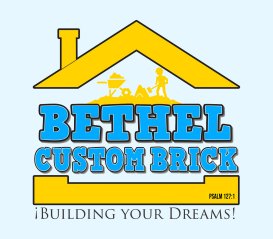Masonry chimneys are built to withstand the elements, but prolonged exposure to harsh weather conditions can take a toll on their structure and functionality. From heavy rain to freezing temperatures, weather can cause significant damage over time, potentially compromising both the safety and appearance of your chimney. Understanding how different weather conditions affect masonry chimneys and knowing how to address these issues can help you protect your home and avoid costly repairs.
How Weather Impacts Masonry Chimneys
1. Water Damage from Rain and Snow
- The Problem: Masonry is porous, meaning it can absorb water during rain or snow. Over time, this moisture can seep into the bricks and mortar.
- The Impact: Water infiltration weakens the structural integrity of the chimney and can lead to issues like spalling bricks, deteriorated mortar, and internal leaks.
- Solution: Waterproofing treatments and properly installed chimney caps can minimize water damage.
2. Freeze-Thaw Cycles
- The Problem: During colder months, water trapped in the chimney freezes and expands, causing cracks in the masonry. When the ice melts, these cracks become larger over time.
- The Impact: Freeze-thaw damage accelerates brick and mortar deterioration, leading to significant structural issues if not addressed.
- Solution: Regular inspections and sealing cracks early can prevent this cycle from causing extensive damage.
3. Wind and Storm Damage
- The Problem: High winds and severe storms can dislodge bricks, damage flashing, and even shift the chimney’s alignment.
- The Impact: Exposed masonry and damaged flashing allow water to penetrate the chimney, increasing the risk of leaks and structural instability.
- Solution: Secure flashing and chimney crowns, and inspect for damage after severe weather events.
4. UV Exposure and Heat
- The Problem: High winds and severe storms can dislodge bricks, damage flashing, and even shift the chimney’s alignment.
- The Impact: Compromised mortar reduces the stability of the chimney, increasing the likelihood of water infiltration and brick displacement.
- Solution: Repointing mortar joints and applying UV-resistant sealants can help mitigate damage.
5. Condensation and Temperature Variations
- The Problem: Rapid temperature changes, such as those between warm interiors and cold exteriors, can cause condensation inside the chimney.
- The Impact: Condensation promotes mold growth and corrosion, particularly in metal components like chimney liners.
- Solution: Proper insulation and ventilation can reduce condensation issues.
Signs of Weather Damage in Your Masonry Chimney
- Cracked Bricks or Mortar Joints: Visible cracks or missing mortar are often the first signs of weather-related damage.
- Spalling Bricks: Flaking or crumbling bricks indicate water infiltration and freeze-thaw damage.
- Efflorescence: White, powdery residue on the masonry suggests moisture issues.
- Leaning or Shifting Chimney: A tilted chimney can result from high winds or foundation issues caused by water.
- Interior Water Stains: Water stains near the fireplace or on walls adjacent to the chimney signal leaks.
What You Can Do to Protect Your Masonry Chimney
1. Install a Chimney Cap
- A chimney cap prevents rain, snow, and debris from entering the chimney, reducing the risk of water damage and blockages.
2. Apply Waterproofing Sealants
- Professional waterproofing treatments create a breathable barrier that keeps water out while allowing trapped moisture to escape.
3. Repair Cracks and Mortar Joints
- Addressing cracks early through repointing or tuckpointing prevents them from worsening due to weather exposure.
4. Maintain the Chimney Crown
- A well-maintained crown directs water away from the chimney and protects against leaks.
5. Secure Flashing
- Properly installed and maintained flashing around the chimney base prevents water from seeping into the roofline.
6. Schedule Regular Inspections
- Annual inspections by a professional can identify weather-related damage early and ensure your chimney remains in top condition.
7. Clean the Chimney Regularly
- Removing creosote and debris reduces the risk of blockages and water retention inside the flue.
Why Timely Maintenance Matters
Proactive maintenance and timely repairs are essential to extending the life of your masonry chimney. Left unaddressed, weather damage can lead to expensive repairs or even the need for a complete rebuild. Protecting your chimney not only safeguards your home but also preserves its aesthetic appeal and value.
Bethel Custom Brick – Protecting Masonry Chimneys in the Detroit Metro Area
At Bethel Custom Brick, we specialize in restoring and protecting masonry chimneys from the effects of harsh weather. Serving the Detroit Metro area, our experienced team offers services including waterproofing, repointing, crown repair, and more to keep your chimney safe, functional, and visually appealing. Contact us today to schedule an inspection and ensure your chimney is prepared to withstand the elements.


